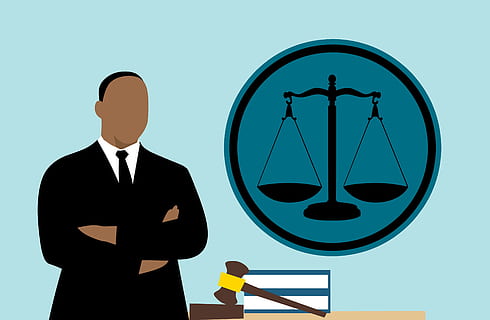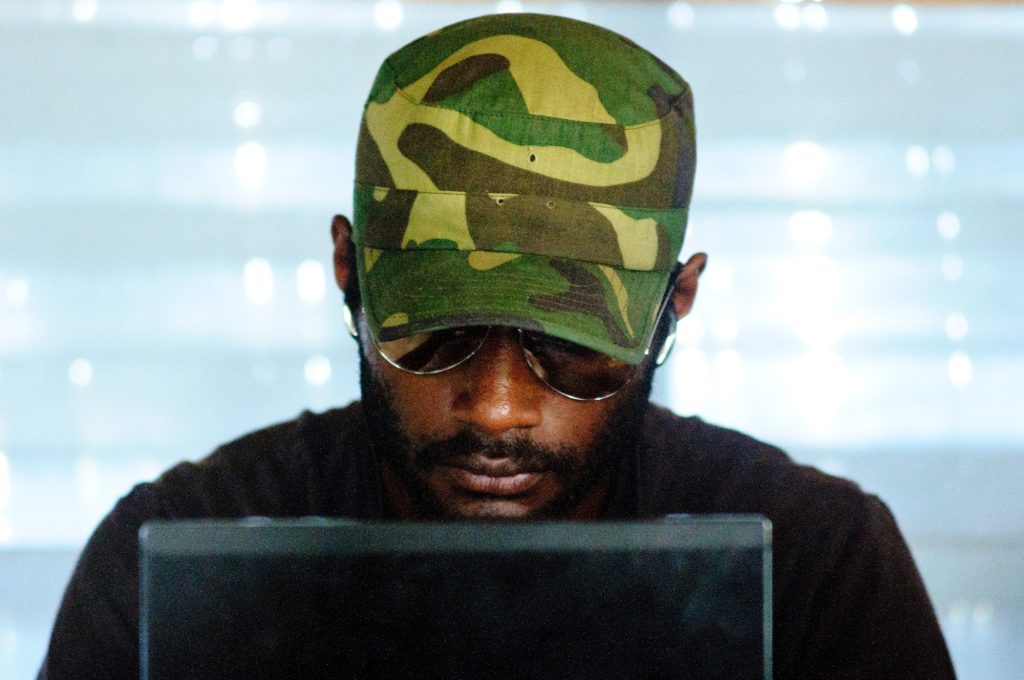What does the future hold for us? That’s easy!
Just apply this handy little flowchart:

With apologies to Leonard Cohen’s ghost, the one thing that everybody knows about Vanuatu politics is that nobody really knows what’s going to happen.
That’s a deceptively simplistic statement, but it’s been the essence of government since time immemorial—or since I got here, at least.
Here’s the thing: There are too many variables for anyone to be across all of them all of the time. Events of the last week or two offer a textbook example of why even the tiniest bit of prediction is certain to hoist you like a petard.
Try to follow along here: Head of Government Business Robin Kapapa resigned his position and moved to the Opposition side. Hours later, a photo emerged on social media announcing that his allegiance had shifted to the so-called G10 bloc, and he remained loyal to government. The same day, another photo was circulated, showing him happily ensconced with the Opposition. It was accompanied by his letter of resignation.
Then his party Secretary General and President lined up behind him, adding their weight, if not their numbers, to the Opposition. Days later, it was announced that Mr Kapapa’s fellow party member from Tanna would be joining him in Opposition. Then he would not.
Then the UMP met to iron things out, and were photographed standing together in solidarity beside their government leader, the deputy prime minister. Then an amplification was circulated, saying that the party had settled its differences, but Robin Kapapa would remain on the Opposition side.
Tired yet? If so, then Vanuatu politics is probably not for you.
This is just another day in the life. The lack of polar political alignment makes the business of running the country a Byzantine affair at best.
There are 52 MPs elected to Parliament, each with his own ideas, agenda and expectations. There are dozens or even hundreds of backers and supporters standing behind each of them, and hundreds more attached to party apparati. There are hundreds more lined up behind failed candidates, including some who ran spoiler campaigns, with great expectations. There are corporate interests and investors, diplomats, cops, spies and whistleblowers. Every single one of them wants something, and every single one of them is trying to decide which horse to back.
Then there are the other politicians and their advisors. The experienced ones know better than to plan. They arrive knowing that their time is short, possibly a matter of months or even weeks. They know that, no matter what’s said at the cabinet table, things could change literally overnight.
As former Prime Minister Serge Vohor famously said, we don’t have one Prime Minister and 13 deputies; there is one Big PM, and 13 Small PMs. Everyone is doing what he can while he can. He knows better than to plan. Plans waste time and delay the returns everyone’s hungrily awaiting.
I’m not suggesting anything untoward here. Quite the opposite. Just getting on with things like disaster response, infrastructure development or even cost-saving initiatives is a dark art. Even those who have mastered it only manage to succeed at a minority of things they set out to do.
I’m loth to provide a single example, because it might put undeserved emphasis on a single person or activity. I hope it’s sufficient to say that no one is immune.
So with that proviso, let’s look at one really commendable reform that the 2016 government took on. Within weeks of taking office, the minister of infrastructure and public utilities announced a wholesale review of vehicle use. He commissioned a study(!!!), and declared that his reforms could save the government hundreds of millions of vatu annually.
The measures included establishing a Fleet Management Unit under the Public Service Commission to oversee the acquisition and disposal of vehicles. It instituted a single payer plan with local fuel suppliers. It installed GPS units on the majority of public vehicles. It placed a moratorium on short-term rentals without prior approval. It required that vehicle types and prices be justified prior to purchase. It instituted a tender process for vehicles at the end of their service life.
And then the savings rolled in and everyone did exactly as they were told and rainbows filled the sky.
Or not.
The fuel deal stuck, because it worked for those involved, simplifying billing and making it easier to chase payment. It didn’t necessarily stop drivers from filling others’ tanks from their allotment, but some of the more wanton abuses were stopped.
The GPS units did allow officials the ability to see where their cars were, and geo-block them or turn them off remotely after hours. Which was cool, and a little embarrassing to more than a couple of stranded drivers sheepishly calling back to base for a pick up.
Now, all G-plated vehicles are under the purview of the Fleet Management Unit of the Public Service Commission. Which is why there are so many publicly-owned vehicles that no longer sport a ‘G’ on the plate. Amusingly, it seems to have been the State Law Office that found the loophole. It doesn’t operate under the PSC and therefore vehicle acquisitions are its own business. Likewise, the Police, Vanuatu Mobile Force, the Public Prosecutor and constitutional bodies such as Parliament, the President’s office and countless others.
When the regs were implemented, the Speaker’s vehicle was plated RV2 (RV1 is the President’s car). In a deal brokered shortly in the previous parliament, the Opposition Leader was provided with a car. Its tactfully coded number plate, RV2A, was the subject of intense negotiation.
Since the vehicle reforms came into place, parliamentary vehicles experienced less, not more, oversight. Now the number plates go all the way to RV2Q.
People who used to avail themselves of protocol vehicles or rentals now have nice new cars of their own, as it were.
In early 2019, I conservatively estimated that the government was more than VT 700 million over budget for vehicle-related expenses over a 12 month period.
So what does this have to do with the unpredictability of Vanuatu politics? Well, nothing and everything. The minister tried—and partly succeeded—in achieving an actual policy objective. But he was ousted from government a while later. Although he later returned, it was in a different ministry, with a different set of policy objectives.
And here’s the thing: Everyone knew they only had to toe the line—for a while.
And they knew that before too long, they could bend the regs and ignore the intent of the reforms. The plan was flawed. It only promised improvements tomorrow, not today. And they only improved the government’s existence, not their own.
So if an MP seems unengaged with a particular policy brief, or disinterested in a project that’s going to take time and effort, don’t blame him. There’s no tomorrow in politics, and not much upside in playing a long game.
So how did some of the major policy wins of the past come about then? How did the Department of Strategic Planning, Policy and Aid Coordination stand itself up? How did the visionary Vanuatu 2030 strategy come about?
How did the telecommunications policy and the Universal Access Policy, which revolutionised communications in the country, come about?
How did the infrastructure push come into play?
Why haven’t we spent our passport money like a punter who hit big on the ponies?
Because while politics is lived day to day, a core group of hard-working professionals still manages to cling to the middle and upper layers of the civil service, and do right by the country as well as their minister. And there are in fact some politicians who care about this stuff. And a great many others who know better than to get in the way.
But these people know better than anyone how things can change. They know that priorities shift with the wind, and that even for them, their mandate may last no longer than the life of a mayfly.
They don’t survive by predicting the outcome of the next contest, or by hitching their wagon to a particular star. They survive by delivering quickly on the things that make their life liveable, and then spend what little time remains to them shepherding the long-term stuff quietly along. It’s a thankless—and often fruitless—undertaking.
They are heroes.
Now, don’t you dare blame politicians for this. They didn’t invent it. The sand is shifting under their feet every moment of the day. They know they have to deliver, and quickly, or someone else will be the one making the promises, and driving the car.
A lot of people try to make a living by pretending they know what’s going to happen in politics. But the ones who survive year after year aren’t the ones who are sure. The survivors are the ones who know better than to be sure about anything.
The good ones know: Nobody really knows.







